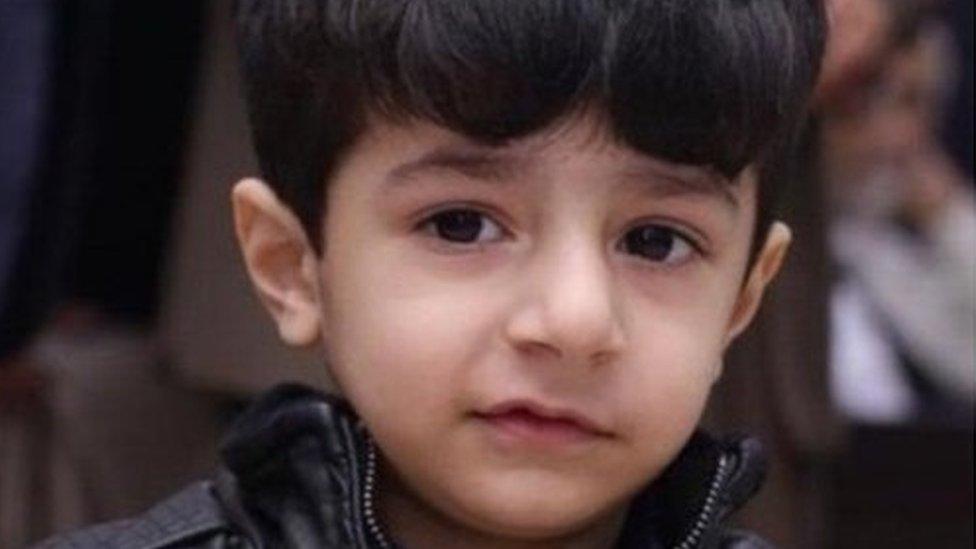Coronavirus: Fear as son, 7, 'stuck in' Pakistani orphanage
- Published
"I weep every night for my son in Pakistan"
The parents of a child stuck in a Pakistani orphanage say they feel terrified for his safety during the coronavirus outbreak.
Amin Rasheed and wife Anila Amin had to leave Ashar, seven, with his grandmother to get help for their seriously ill son Shahryar, five.
But after falling ill, she had to put him in an orphanage in December.
The family had been desperately trying to get him a visa, but all the offices have been closed due to the pandemic.
"We cannot explain how lost we are feeling. We got the call they were closed and I put the phone down and cried for an hour," said Mr Rasheed, who lives in Cardiff.
"We are hoping that someone will do something and take him from that place. There is no possible way of social distancing, there are hundreds of children. They are already three times over the capacity."
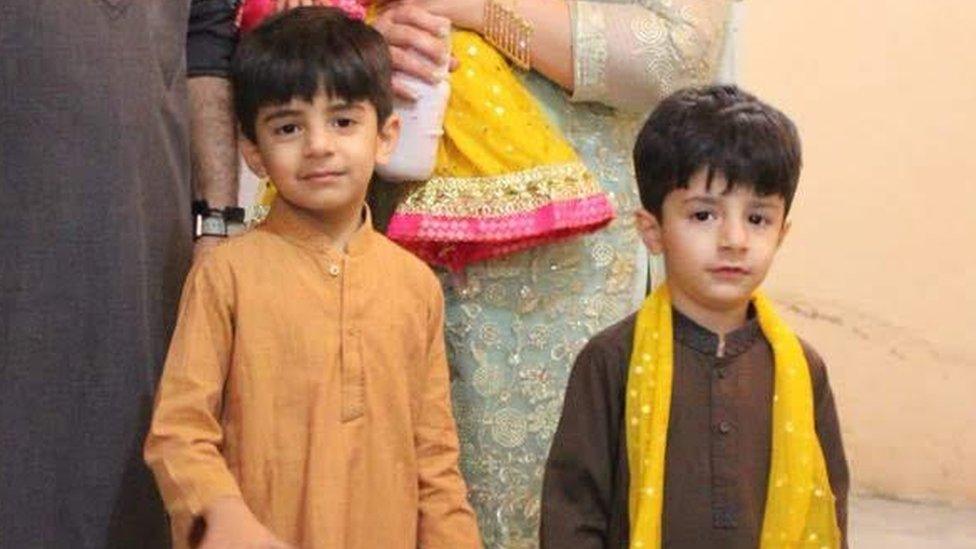
A family friend advised the family to try and get a visa for two of the children, and they had to leave Ashar (left) behind
More than 1,000 cases of the virus have been confirmed in Pakistan, and the government has introduced sweeping restrictions, including suspending international flights, external to the country.
The family, from Lahore, raised thousands of pounds to come to the UK in April 2019, after their youngest son, Shahryar, became seriously ill and doctors back home could not treat him.
When a visa application for the whole family was refused, the couple left their eldest child, Ashar, behind with his grandmother in the hope they would return in a matter of weeks.
But after finding out Shahryar had a life-threatening illness, which has left him paralysed from the neck down, they have been unable to go back home, and fear they could be killed due to borrowing so-much money to pay for treatment.
His two-year-old sister Zoha has also been diagnosed with the condition, methylmalonic acidemia (MMA), which prevents people's bodies from processing certain fats and proteins, meaning they have to follow a strict diet and are high risk if they become infected with coronavirus.
Mr Rasheed said there was a 75% chance Ashar could also have the genetic disease, which can cause seizures, strokes or even a coma.
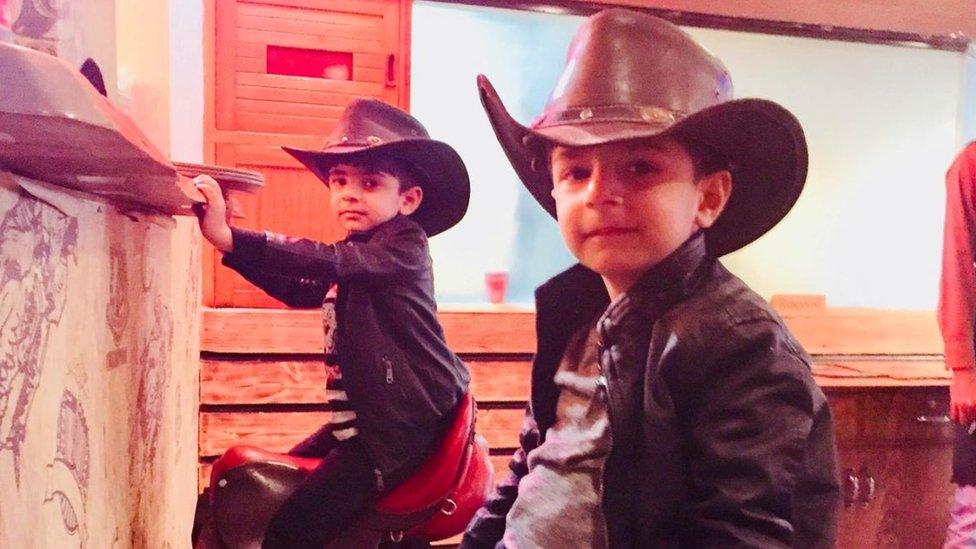
The family hope they will finally all be reunited and live in Wales
Ashar, who has been in an orphanage since Christmas, was due to have an appointment for a visa application on Wednesday at the UK visa office in Lahore.
But on Tuesday the office was closed until further notice due to coronavirus.
Mr Rasheed said the family, who are living in Roath, Cardiff while Shahryar and Zoha get treatment from the University Hospital of Wales, are self isolating.
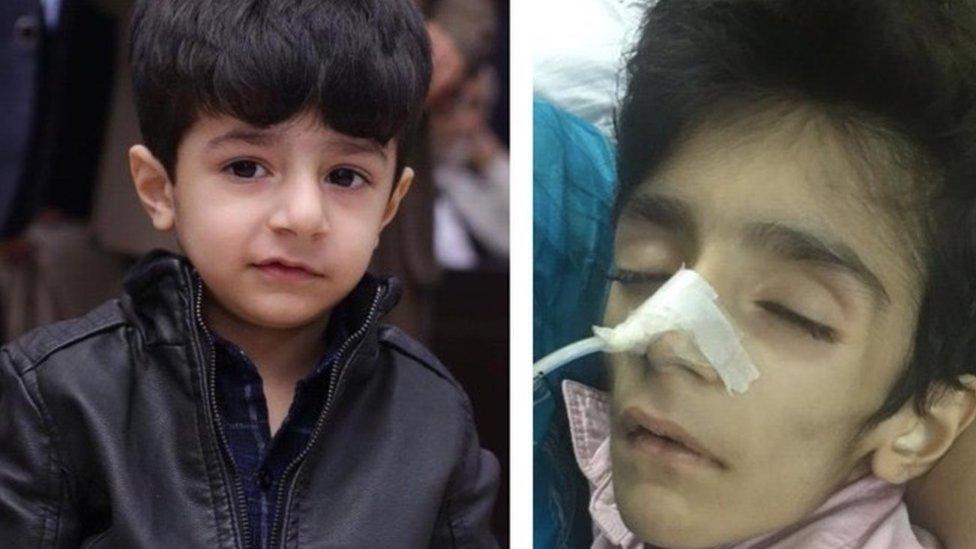
Ashar, seven (left) had to be left in Pakistan while the family got help for Shahryar, five, who has a life-threatening medical condition
But they are frightened for their eldest son, with no idea when the embassies will reopen to start the process of bringing him home.
"There is nothing we can do but hope. No-one has any control of this virus," said Mr Rasheed.
"We have spoken to him. He was just crying. He was saying 'when are you coming to get me'. He was saying 'I do not want to live anymore.'
"He doesn't understand. He thinks we are deliberately not doing anything. We have numerous promises, telling him it will be a few days. Thankfully he is well at the moment."
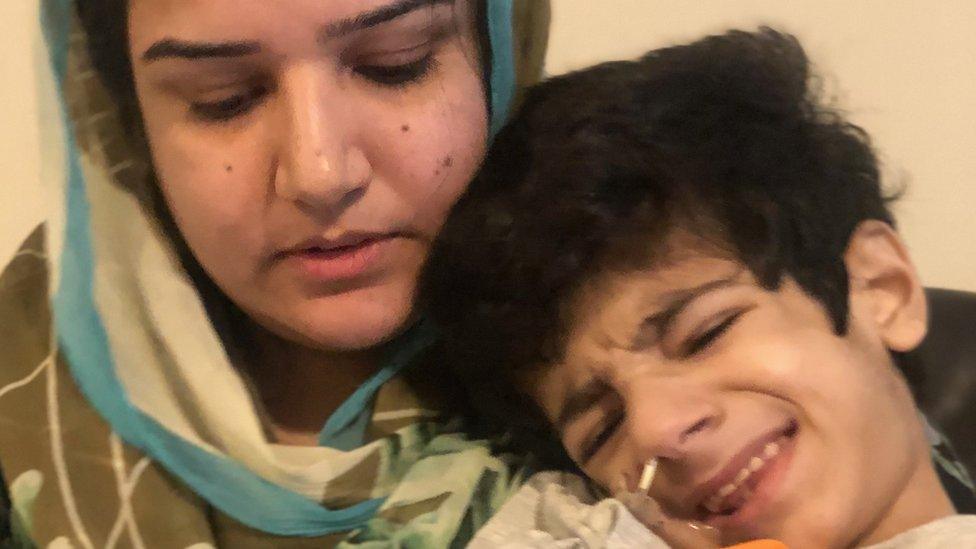
Anila with her son Shahryar, who has a life threatening disorder which can be triggered by protein
Human rights lawyer Chris Simmonds of Virgo Consultancy Service said he was trying to find a way to get Ashar to his family.
In order to apply to start the process to come to the UK, Ashar had to go to the visa office to have his biometrics - such as finger prints - taken, but is unable to do that until they reopen.
Mr Simmonds is hoping the UK government can make an exception, and delay the measure until later in the application process, so it is not months before Ashar knows if he can see his family.
"I do not know if there is anything that can be done," he said.
"At the moment it is quite a difficult situation. It is not a legal barrier. It is a physical barrier which is stopping us."
In response to questions about the situation, the Home Office told BBC Wales it did comment on individual cases.
- Published24 March 2020
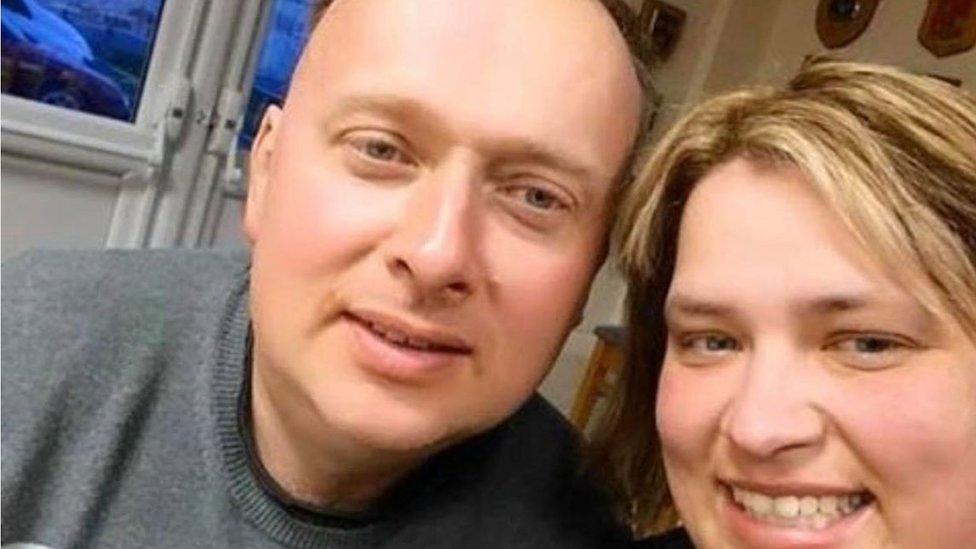
- Published11 May 2020
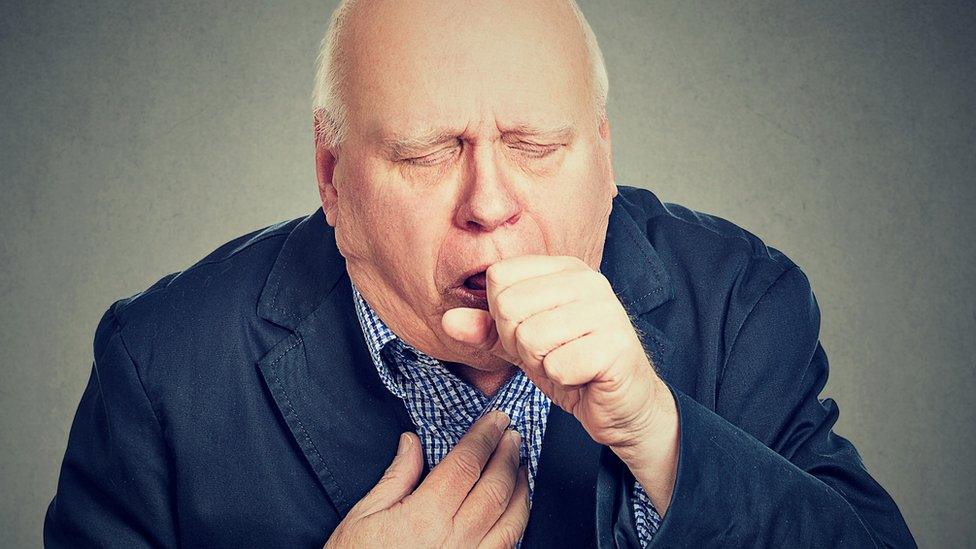
- Published14 February 2020
